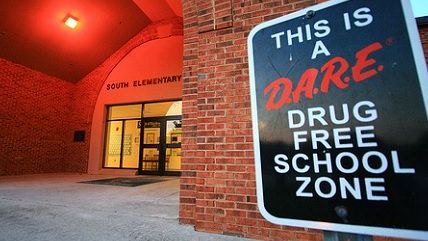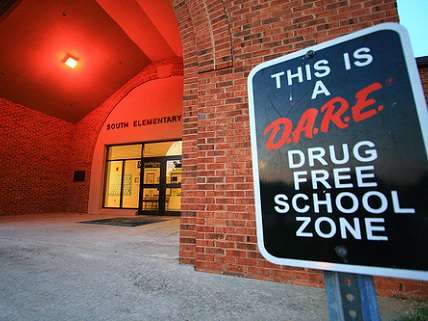Study Says: Drug Testing in Schools Doesn't Work, But There Are Better Ways to Keep Kids Off Drugs
Won't someone think of the children?


A new study (pdf) published in the Journal of Study on Alcohol and Drugs based on 361 high school students assessed one year apart finds that student drug testing "was not associated with changes in substance use, whereas perceived positive school climates were associated with a reduction in cigarette and marijuana initiation and a reduction in escalation of frequency of cigarette use."
The study also found that neither drug testing nor a "positive school climate" affected alcohol use, because, the study authors claim, it is "normative." The study defined a positive school climate based on asking students who were followed how they felt about whether: "(a) the rules in the school are clear, (b) teachers can handle problems in the school, and the level of respect between (c) students, (d) teachers for students, and (e) students for teachers is high."
Ten years ago, in the 2004-2005 academic year, one in seven school districts had some kind of random drug testing program. Sometimes the introduction of drug testing, or even drug dogs, in schools is met with thunderous applause. Sometimes some parents put up opposition. Parents at one high school in New Jersey have recently taken their school district to court looking for documents the district said showed drug testing was needed, but also claimed those documents were confidential and privileged. A state judge decided in the parents' favor, awarding them $7,500 in legal fees and ruling the school shouldn't have withheld documents and that using private e-mail didn't mean they could evade open records laws. You can put up a fight, or let the Marge Simpsons win.
More Reason on drug testing.


Show Comments (20)